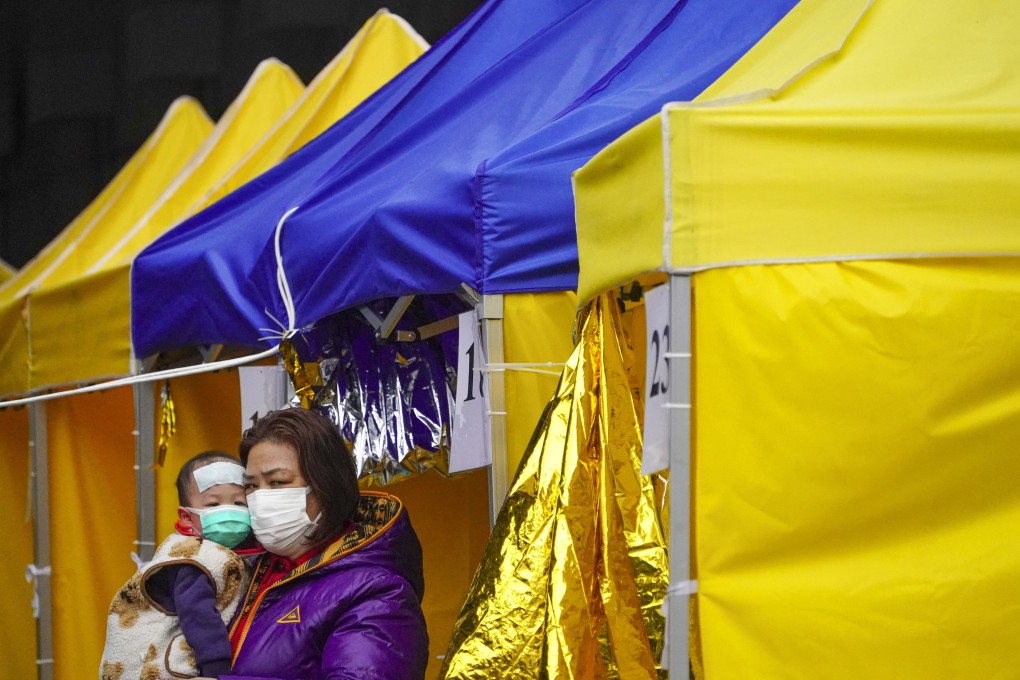Coronavirus Hong Kong: authorities switch to rapid test kits to confirm infections amid growing backlog, as close to 22,000 infections reported in single day
- But residents deemed at high exposure risk to virus, such as workers at quarantine centres or the airport, will still be required to take nucleic acid test
- For first time, number of confirmed cases crosses into five digits, with 10,010 emerging on Friday

The new testing strategy announced on Friday night means that people who return positive results in rapid tests will be treated as confirmed cases immediately when they register the information with the government online.
While most people subject to compulsory testing can use a rapid test at home instead of lining up at community testing centres or using a specimen bottle for saliva samples, those deemed as having high exposure risk to the virus, such as workers at quarantine centres or the airport, will still be required to take a nucleic acid test.
Under the new arrangement, test results from private labs will no longer require further testing for confirmation by the Centre for Health Protection (CHP), given the severe backlog.
The changes can significantly speed up the city’s progress in confirming Covid-19 infections; it currently takes from a few days to more than a week to process nucleic acid tests with the exponential growth of cases.
Before the announcement of the new testing strategy, the CHP conceded that “a significant portion” of specimens could not be confirmed within 48 hours, with about 10,000 to 20,000 test results pending confirmation.
Government pandemic adviser Professor David Hui Shu-cheong said the policy change was a “good thing” because many people who tested positive were not reporting the results to the government, which led to an underestimation of infection numbers.
“People won’t have to worry about isolation any more,” he said, referring to residents who were stuck in limbo as they could only complete home isolation 14 days after returning a negative nucleic acid test result. “They can also have a record to get medical leave.”
